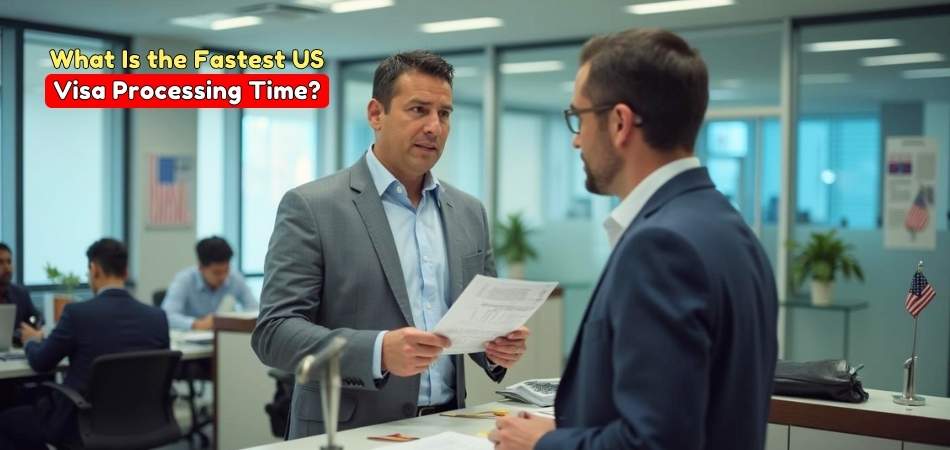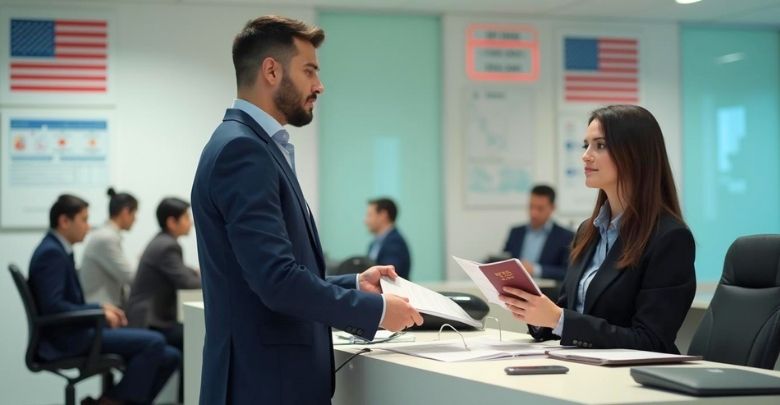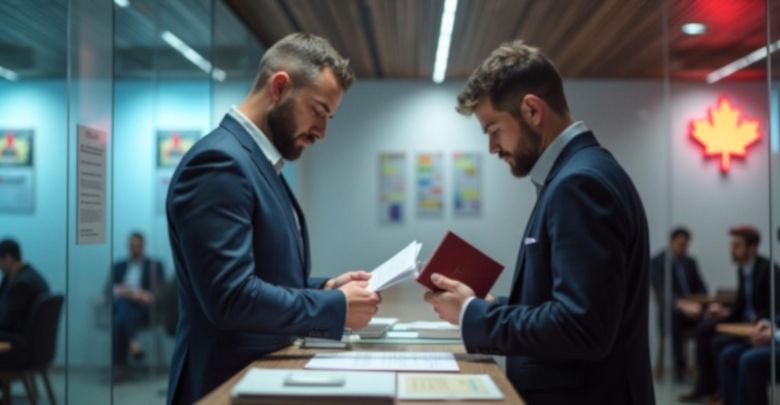When applying for a US visa, one of the most important factors to consider is the processing time. Whether you’re planning a short trip or moving for work, knowing how long it will take to get your visa approved can help you plan better. So, what is the fastest US visa processing time?
Depending on the type of visa, processing times can range from a few days to a few weeks. For example, the B1/B2 Tourist Visa may take a few days to a few weeks based on embassy workload, the ESTA Visa Waiver is typically approved within 72 hours, and the H1B Visa can take 1-3 months.
Would you like to learn more about this topic? Check out the following article for more information about each visa’s processing time and how to expedite your application.
What Is the Fastest US Visa Processing Time?
Traveling to the United States requires a visa, but processing times can vary depending on the visa type. Being aware of the fastest US visa processing time helps applicants plan better. Let’s explore the different visa options and how long they typically take to process:

ESTA Visa Waiver Program
The ESTA Visa Waiver Program offers one of the quickest ways to enter the U.S. for tourism or short business trips. Approval typically happens within 72 hours after submitting the online application. This option is available to citizens of 40 eligible countries, making it highly convenient. Applicants must ensure their passport is valid for at least six months beyond their stay.
B1/B2 Tourist and Business Visa
The B1/B2 Visa is designed for travelers attending an international conference in USA, business meetings, and vacations. Processing time ranges from a few days to several weeks, depending on the embassy’s workload. Applicants need to complete the DS-160 form, pay the fee, and attend a visa interview. Booking an appointment early can help avoid long wait times.
H1B Work Visa with Premium Processing
The H1B Visa is for skilled professionals seeking employment in specialized fields in the U.S. Standard processing may take 1–3 months, but premium processing shortens it to just 15 days. This expedited service requires an additional fee paid by the employer. Timely submission of all required documents ensures a smooth process.
F1 Student Visa
Students accepted into U.S. educational institutions need the F1 Student Visa. Processing typically takes a few weeks but may extend during peak seasons. Applicants must first receive the I-20 form from their school and pay the SEVIS fee. Scheduling a visa interview early is recommended to avoid delays.
K-1 Fiancé(e) Visa
The K-1 Fiancé(e) Visa allows U.S. citizens to bring their fiancé(e) to the U.S. for marriage. Processing usually takes 6–9 months due to background checks and interviews. The couple must marry within 90 days of entry. Providing accurate documents and evidence of the relationship is critical for approval.
O-1 Visa for Extraordinary Ability
The O-1 Visa is for individuals with exceptional achievements in arts, sciences, education, business, or athletics. Regular processing takes about 2–3 months, but premium processing reduces this to 15 days. Applicants must submit extensive proof of their accomplishments. Strong recommendation letters can strengthen the application.
Do Emergency US Visas Get Processed Faster?
Yes, emergency U.S. visas do get processed faster than regular visas. These visas are designed for urgent travel due to medical emergencies, funerals, or urgent business matters. Applicants must provide strong proof of the emergency to qualify for expedited processing.
Embassies and consulates prioritize genuine emergencies but still follow strict guidelines. Not all requests for emergency visas are approved, even if the situation seems urgent. Proper documentation and a clear explanation are necessary for faster processing approval.
Emergency visa appointments are limited and granted only for qualifying situations. Applicants must schedule an emergency interview and meet all requirements. Even with urgency, approval is not guaranteed without complete and accurate documentation.
What Are the Most Common Reasons for Visa Processing Delays?
Visa processing delays can occur for various reasons, often beyond the applicant’s control. By knowing these reasons, it is possible to manage expectations during the application process. Below are the most common reasons for visa processing delays:
Incomplete or Incorrect Application Forms
Errors or missing information on visa forms can lead to processing delays. Incorrect personal details or skipped sections require additional review. Forms with inconsistent information may be flagged for further verification. This slows down the approval process.
Insufficient Supporting Documents
Missing or incomplete supporting documents often delay visa applications. Required paperwork must meet specific embassy or consulate guidelines. Failure to provide financial statements or travel plans can cause processing issues. Inadequate documentation prompts further inquiries.
High Seasonal Demand
Visa applications surge during peak travel seasons, leading to longer wait times. Holidays and academic start dates increase processing volumes. Embassies may become overwhelmed by high demand. This results in slower application reviews.
Security Clearance and Background Checks
Some applications require additional security screenings. Applicants from certain countries may face extended background checks. Prior travel history or dual citizenship can trigger more in-depth reviews. Security checks can significantly delay processing.
Administrative Processing
Certain cases are placed under administrative processing for further evaluation. This involves verifying additional details or documents. The duration of this review is unpredictable. It may extend the overall processing time.
Embassy or Consulate Workload
Embassy workloads vary by location and staffing levels. Some consulates handle more applications than others. Local holidays or staff shortages can slow operations. This impacts how quickly visas are processed.
Is Expedited Visa Processing Available for All US Visa Types?
No, expedited visa processing is not available for all U.S. visa types. Only specific visas, like work or business visas, offer faster processing options. Some visa categories require standard processing times due to security checks and thorough reviews.
Certain visas, such as tourist or student visas, typically follow normal processing timelines without expedited services. This ensures fair and consistent evaluations for all applicants. Some humanitarian and emergency situations may allow for faster consideration, depending on the case.
Premium processing is mainly offered for select employment-based visas but not for immigrant or family-based visas. U.S. embassies and consulates strictly follow visa-specific rules for processing times. Each visa type has its guidelines that determine eligibility for expedited processing.
What Should You Do if Your US Visa Processing Is Taking Too Long?
Waiting for a U.S. visa decision can be stressful, especially when it takes longer than expected. Being aware of the steps to take during delays can help manage the situation effectively. Here are some helpful actions to consider if your U.S. visa processing is taking too long:
Check Your Application Status Online
Start by checking your visa application status through the official U.S. Department of State website. Regular updates are provided regarding the current status of your application. This tool helps applicants stay informed about any progress. Delays are sometimes due to routine processing updates.
Contact the Embassy or Consulate
If your visa is delayed, reach out to the embassy or consulate handling your application. They can provide updates or clarify issues. Use the contact details provided during your visa interview. Clear communication can help you understand the reason for the delay.
Review Your Submitted Documents
Double-check that all required documents were submitted correctly. Missing or incorrect paperwork often causes unnecessary delays. Review the embassy’s checklist to ensure completeness. Providing all requested documents is essential for timely processing.
Monitor for Additional Requests
Sometimes, additional information or documents are required to continue processing. Watch for requests through official communication channels. Enabling US visa email notification helps you stay updated on important messages. Responding quickly prevents further delays.
Consider the Impact of Processing Times
Processing times vary depending on visa type and the embassy’s workload. Seasonal demand and security checks often slow down processing. The ability to manage expectations depends on being aware of these factors. Patience is sometimes necessary during extended review periods.
Seek Professional Guidance
Consulting an immigration lawyer or visa expert can offer clarity during prolonged delays. They understand visa policies and processing procedures. Legal experts may suggest steps to address complex issues. Professional advice can ease the process and reduce stress.
How to Proceed After Obtaining a US Visa?
Obtaining a U.S. visa is an important milestone for your travel plans, but your journey doesn’t end here. Knowing the next steps ensures a smooth and hassle-free experience. Follow these essential guidelines to make the most of your U.S. visa approval:
Verify the Details on Your Visa
Carefully review all information printed on your visa, including name, passport number, and validity dates. Mistakes can cause issues at entry points. Contact the issuing embassy immediately if any errors are found. Ensuring accuracy avoids unnecessary complications during your travel.
Plan Your Travel Itinerary
Organize your travel plans according to your visa’s validity and entry conditions. Book flights, accommodations, and necessary internal transportation early. Confirm your port of entry to ensure it matches your travel purpose. Preparing ahead ensures a stress-free journey.
Understand Your Visa Restrictions
Each visa type comes with specific rules regarding the duration of stay and allowed activities. Overstaying or misusing the visa may lead to penalties. For instance, the USA conference visa validity period determines how long you can participate in events. Staying informed about these rules avoids legal troubles.
Prepare Necessary Entry Documents
Keep essential documents like your passport, visa, and travel tickets easily accessible. Include additional items like invitation letters, financial proof, or itineraries. Customs officers may request these during your entry interview. Organized paperwork ensures a seamless entry process.
Familiarize Yourself with the U.S. Customs Rules
Understand the items allowed or restricted by U.S. Customs before packing your bags. Prohibited items may lead to entry denial or fines. Declare all required goods truthfully to avoid penalties. Following customs regulations keeps your entry smooth and hassle-free.
Follow Your Visa’s Purpose
Stick to the purpose outlined in your visa application, whether for tourism, work, or studies. Engaging in unauthorized activities may violate visa terms. Ensure compliance to maintain good standing for future U.S. travel. Respecting visa conditions ensures a positive travel experience.
FAQs About US Visa Processing Times
In this section, we address the most frequently asked questions related to U.S. visa processing times. Whether you’re curious about specific visa types or the general timeline, the answers here provide clarity. Here are the details:
How Long Does It Take to Get a US Visa Appointment?
Visa appointment wait times vary by location and season. In high-demand months, wait times can stretch to several weeks. Some embassies offer faster appointments for business travelers or emergencies. It’s best to check appointment availability online before applying.
Does Visa Type Affect Interview Wait Times?
Yes, the visa category influences interview wait times. Business and student visas may receive priority in certain seasons. Tourist visas often face longer delays during holiday seasons. Always plan to avoid missing important dates.
Can I Apply for Multiple US Visas at Once?
Applicants cannot apply for multiple visas of the same type simultaneously. However, it is possible to apply for different visa categories if necessary. Each visa type requires separate forms and fees. Ensure all applications align with your travel purpose.
Does the US Embassy Process Visas on Public Holidays?
No, U.S. embassies and consulates do not process visas on public holidays. These closures may extend processing times. Consider local holidays when planning visa applications. Apply early to avoid delays caused by closures.
What Happens if My Visa Expires Before Traveling?
If your visa expires before you travel, you must apply for a new visa. Visas cannot be renewed or extended once they expire. Applicants must complete the entire application process again. Planning ahead prevents this issue.
Bottom Line
Travel planning is easier when you know how long it takes to process U.S. visas. Processing durations vary based on visa types, ranging from a few days to several months. For instance, the ESTA Visa Waiver is approved within 72 hours, while the H1B Visa can take 1-3 months. This raises the important question: What is the fastest us visa processing time?
The answer depends on the visa category and individual circumstances. Factors like incomplete applications, security checks, and seasonal demand can cause delays. Staying informed, submitting accurate documents, and tracking updates can help avoid setbacks. By being aware of these timelines and requirements, applicants can better prepare for a successful and stress-free U.S. visa process.







